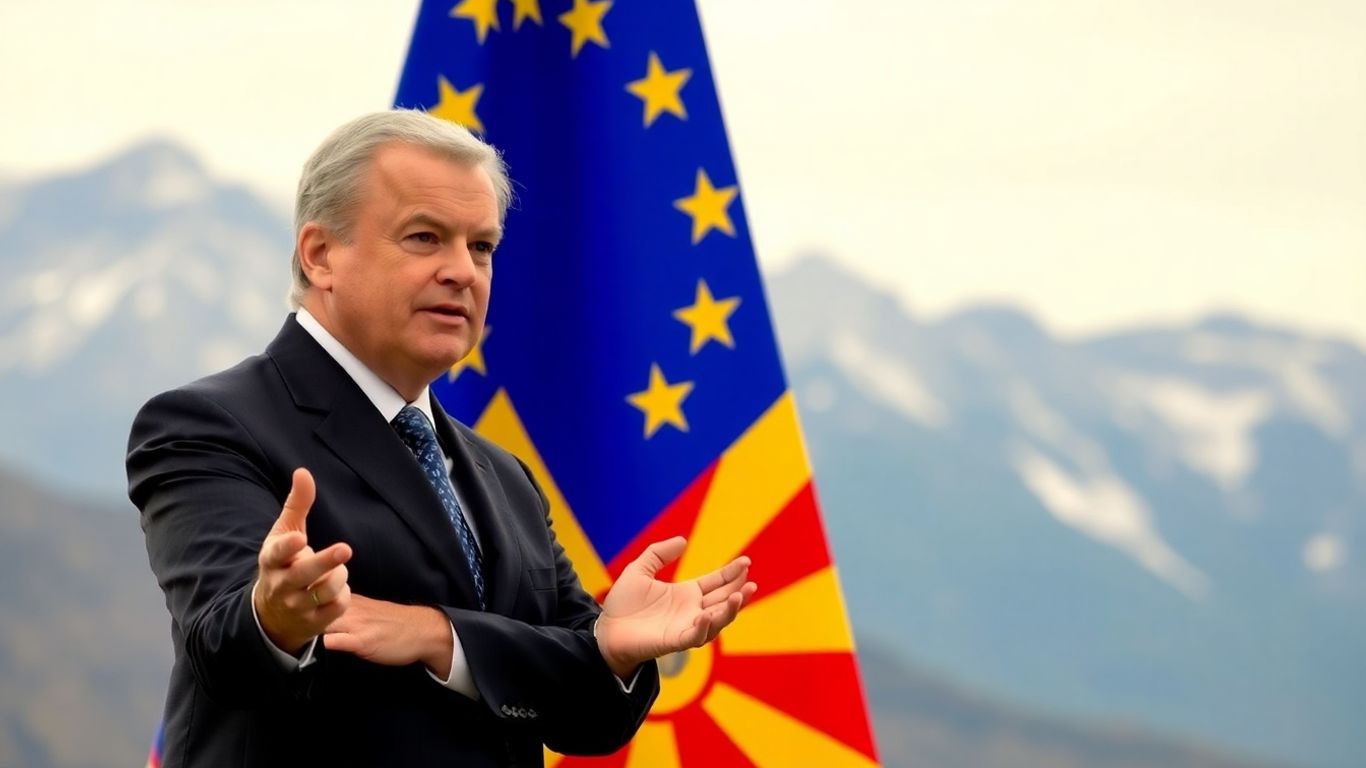North Macedonia’s President Gordana Siljanovska-Davkova has strongly voiced her nation’s concerns regarding the European Union’s accession process, particularly the demand for constitutional changes. Speaking at international forums, including the UN General Assembly, she argued that such requirements are subjective and go against the EU’s own principles of diversity and respect for national identity. President Siljanovska-Davkova emphasized that these demands reopen sensitive historical and cultural issues previously thought resolved.
Key Takeaways
- North Macedonia’s EU accession has been delayed for two decades due to subjective, nationalist reasons rather than objective criteria.
- The EU’s demand for constitutional changes is seen as an external imposition, violating national sovereignty and the principle of ‘unity in diversity’.
- Existing treaties with Bulgaria do not stipulate constitutional amendments as a condition for EU accession.
- The President called for UN reforms to make the Security Council more inclusive and the General Assembly a policy-making body.
- Artificial intelligence was highlighted as a transformative force with significant societal implications.
EU Accession Hurdles
President Siljanovska-Davkova addressed the 80th Session of the United Nations General Assembly’s General Debate, asserting that North Macedonia’s path to EU membership has been obstructed for 20 years by subjective, nationalistic considerations, not by objective Copenhagen criteria. She specifically criticized the EU’s latest condition for opening accession negotiations: a constitutional amendment in North Macedonia. Siljanovska-Davkova described a nation’s constitution as its supreme law and a social contract, citing Rousseau. She detailed that amendments can only be initiated by the president, government, at least 30 MPs, or 150,000 citizens, making it clear that such authority cannot be imposed by a neighbor or the EU.
Treaty Obligations and EU Principles
The President pointed out that the 2017 Treaty of Friendship, Good Neighborliness, and Cooperation with Bulgaria contains no provisions requiring constitutional changes. She questioned how the EU’s foundational principles of "unity in diversity" and respect for cultural and linguistic identity align with demands to negotiate internal historical and cultural matters. Siljanovska-Davkova stressed that North Macedonia seeks EU integration without additional, exceptional conditions, while preserving national dignity, and warned against leaving the Western Balkans in a "geopolitical vacuum."
Global Geopolitics and UN Reform
In her address, Siljanovska-Davkova also commented on the emergence of a "new geopolitical era" with competing international orders. She expressed concern over recent airspace violations in Eastern Europe and reaffirmed her belief in achieving sustainable peace in the Middle East through dialogue and diplomacy within international law. Furthermore, she advocated for reforms within the United Nations, suggesting a more inclusive and accountable Security Council and a more policy-oriented General Assembly to address global challenges.
The Rise of Artificial Intelligence
Finally, President Siljanovska-Davkova highlighted the transformative potential of artificial intelligence, acknowledging both its opportunities and risks. She stated her country’s support for making AI a priority at the 80th UN General Assembly session, noting its potential societal impact could exceed that of previous industrial and digital revolutions.






